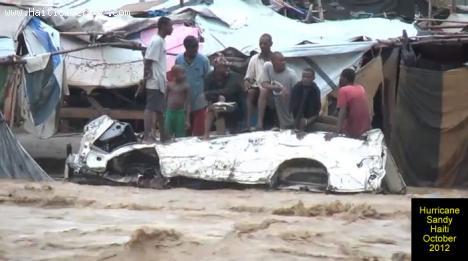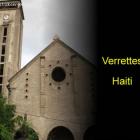ADVERTISEMENT
Cholera - Haiti Observer Blog
Cholera, Haiti Observer Blog. Read the following articles about Cholera
UN chief appoints Paul Farmer as special advisor on Haiti
Cholera has been Haiti's worst health problem for the past few years. From 2010 to the present, there has been a series of outbreaks of this contagious, deadly disease, claiming the lives of about 8,000 Haitians and hospitalizing thousands of men, women, and children. With the country's health care insufficient for its people and in poor conditions and without immediate action, the outbreak could get worse in the next few years to come.
To address Haiti's cholera and health care problem, the United Nations, who has been very active in helping out the country since the 2010 earthquake, delegated the Doctor Paul Farmer from the United States as the UN Secretary-General Ban Ki- moon's special advisor for Community Based Medicine and Lessons on Haiti last December. Several of Farmer's duties are to assist in building support for the fight against cholera in the country and give advice and education on the different medical techniques and alternatives that could be utilized and applied in Haiti and other affected places.
Cholera Prevention Tips when Traveling to Haiti
The 2010 earthquake that demolished Haiti's infrastructure robbed the poorest Haitians of what little they had, homes that were nothing more than hovels. Thrown into the streets of Port-au-Prince with no access to toilets, sanitation virtually did not exist. Having no clean potable water added to the misery.
Nine months following the January earthquake, in October 2010, a cholera epidemic took hold of Port-au-Prince, largely affecting those living in tent cities. These cities are still filled today with earthquake survivors, and cholera cases have increased noticeably since early 2012.
The United States Department of State has kept a travel advisory in place since the earthquake, cautioning American citizens to stay away from Haiti. With the exception of necessary business travel or humanitarian work, Americans are advised not to visit Haiti.
But others claim the majority of travelers to Haiti are not likely to contract cholera. However, they recommend a cholera prevention kit as a precautionary measure:
Health, Medical, and Environmental Risk Factors of Cholera
Cholera, a severe bacterial infection, affects the intestines, causing bouts of watery diarrhea, heaving, circulatory distress, and shock. Anyone can contract cholera, the exception being nursing infants. But there are particular contributors that can predispose people to the illness:
Malnutrition. People who are starving have a propensity to catching cholera. The illness takes hold in places where survivors of war or natural disasters live. Or in communities that suffer famine.
Low levels of stomach acid. Inadequate levels of stomach acid create an environment for cholera bacteria to flourish in. Age groups that have low-acidity markers are children and aged people. Gastric surgery survivors and antacid takers, suffering from ulcers, are also prone to getting cholera.
How to prevent Cholera in Haiti
Haiti's 2010 earthquake, which shook the country to its foundations, especially Port-au-Prince, displaced tens of thousands of Haitians. They were reduced to living in the streets, without adequate sanitation. Nine months later in October of 2010, a cholera epidemic began, and has continued afflicting the poorest segment of Haitians, many of whom remain living in tent cities.
The Ministry of Public Sanitation and the Population has recorded 581,952 cases of cholera as of July 2012, with a 7,455 death tally since October 2010. A noticeable rise in cholera cases have been reported since early 2012 in Centre, Nord, and Port-au-Prince. Port-au-Prince neighborhoods reporting cases of cholera include: Carrefour, Cité Soleil, Delmas, Kenscoff, Petionville, and Tabarre.
Islam Experiencing a Renewal in Haiti
When Haiti's 2010 earthquake hit, it shattered the infrastructure of the country. Thousands of people lost their homes, ending up in tent cities beyond the borders of Port-au-Prince. Survivors of the quake were left, not only without shelter, but without food or water. Although relief aid poured in from all over the world, logistics prevented it from reaching the quake survivors quickly. Because of this, the religion of Islam won new converts, for they were able to offer shelter in the mosques and food.
One of the disaster relief agencies, Islamic Relief USA, arrived in Port-au-Prince and erected 200 shelters, later building a 20-classroom high school. Imam Robert Dupuy says the five mosques located on the island were able to house many hundreds of people. As a result, Islam has experienced more conversions.
Cholera Prevention Tips when in Public places in Haiti
In order to reduce the likelihood of a renewed outbreak of cholera. For the general population, the basics of cholera prevention are re-emphasized:
• use soap and water to disinfect hands before preparation of food, and during the consumption of it.
• disinfect plates, glasses, forks, knives, and spoons with hot water.
• disinfect hands after using toilet facilities.
• boil or disinfect possibly contaminated water.
• use disinfected water only for household tasks.
Because many poorer Haitians don't understand good sanitation habits, the Ministry of Health issues a stern warning to avoid defecating on the ground. And to also avoid defecation near bodies of water, natural or man-made.
After Hurricane Sandy, I really smell trouble for my little country of Haiti
Just a few days after the passage of Hurricane Sandy on Haiti, the population is just beginning to evaluate the level of damages caused by the storm
However, in the next few days, weeks and Months, we will have a lot more to deal with.
Le's see what's coming toward us:
1: Cholera is back.
With so much flooding in so many regions of the country, we can only assume that cholera will be spreading.
2: Agricultural lost:
How do we replace all these agricultural products such as banana, Plantain, yam, just to name a few. Do you remember that it was only a few days ago that the population was asking for the government to resign because families were unable to feed themselves.
Human Rights Attorney Mario Joseph
Haitian-American human rights attorney and Director of Bureau des Avocats Internationaux (BAI), Mario Joseph, provides legal services for those incarcerated for speaking out against the government of Haiti (GOH). He also goes to bat for impoverished Haitians and citizens harmed because of their political beliefs.
Mario Joseph earned his university degree from École Normale Supérieure and studied at Gonaïves Law School. He began his career as human rights counsel for the Peace and Justice Commission of the Catholic Church. In 1996, he became a member of BAI.
Joseph's most significant case was the Raboteau Massacre trial, in which he was lead counsel, representing survivors of the event. The six-week trial ended with 53 convictions and punitive damages of $43 million USD, assessed against the offenders. Joseph did not stop with the Haitian convictions. He assisted the Center of Justice and Accountability to try other instigators involved in the Raboteau Massacre in the U.S. judicial system.
Haiti will get Cholera vaccination starting April 2011
Due to the large number of Haitians who are at risk of contracting the cholera virus, the World Health Organization has decided to start a vaccination campaign in Haiti for cholera in April 2011. Ten million Haitians are currently at risk for the cholera, scientists estimated that by April, 400,000 doses of the vaccine will be available to the population and by December, close to 1 million will be ready.
Teams of the World Health Organization of will start the vaccination in the Artibonite region, where the first case of cholera was reported and also in the region where most people have been affected by the disease.
At Least 45 Haitian Voodoo Priests lynched, accused of spreading cholera
It has been reported by the Haitian authority that at least 45 Voodoo priests in Haiti have been killed by the Haitian population because these people assumed the voodoo priests or Houngan, also sometimes called Mambo were responsible for the cholera outbreak in their community. The population suspected that these voodoo leaders have been spreading the cholera disease through their magic power.
It was also reported that these people were killed violently, either by machete, stone or sometimes, just burned to death.
Our objective is to share with you news and information about Haiti and the people of Haiti. Traditions, habits and the way we were or grew are alive in this site. We highly recommend that you Subscribe to our Newsletter and also share with us some of the things that are memorable and made us unique people.


 Haitian Thanksgiving
Haitian Thanksgiving  Verrettes, Haiti
Verrettes, Haiti  Haiti tech Summit
Haiti tech Summit  Newsletter
Newsletter  Black Friday Shopping Season
Black Friday Shopping Season